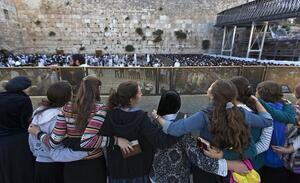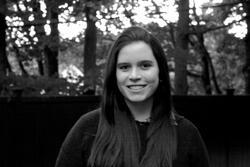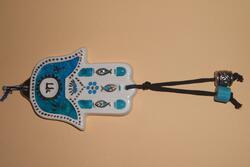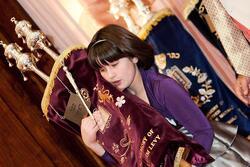Not Just A Jew, Not Just A Feminist
In March 2014, I went to Israel for two weeks with my entire grade. On our first Shabbat there, we were given the choice to attend three different services: Sephardic Orthodox, Conservative, or Reform. As a member of the “only goes to services on High Holidays and doesn’t keep Shabbat” school of observance, I would usually go directly to the Reform service but I thought to myself, “I’m in Israel, I should live a little!” I had heard Sephardic services were full of music and dancing, so that’s where I decided to go.
I put on my long skirt and high collared shirt and with a huge group of my friends walked across the street to the synagogue. An older man with an intricately decorated kippah came outside to welcome us and ushered all the boys into a small plain room. The girls were taken to a separate entrance, where we found ourselves in a huge sanctuary all by ourselves. We heard faint sounds and to our dismay discovered that the prayer was happening only on the men’s side, and we only had a small window to view the services through. There we were, thirteen girls in long skirts alone in a sanctuary too big for us. The space was not filled with music or dancing but with an utter sense of loneliness and exclusion. As I opened my prayer book I almost cried as I looked at words completely alien to me.
Frustrated and lost, I decided to go back across the street to the Reform service, figuring at least I would know the melodies. I went with a couple other girls to the service. It was small, maybe twenty people there all together. At the front of the room stood a female Rabbi whose charisma I had never before witnessed. She spoke with conviction, sang loudly, had banter with those in the room. Towards the end of the service, she invited up a professor from Tel Aviv University (also a woman) to give a drash (sermon) on that week’s portion. I didn’t understand a word but I was enthralled; she wasn’t simply giving a drash, she was giving a performance. Her hands were in the air, her voice was booming, she was saying something about Purim, and I was struck by how much fun she was having. I walked out of that service without a trace of bitterness and more than that, I felt a sense of pride, of hope, of inspiration because here were women who cared about Torah and they were great leaders not in spite of their femininity but because of it.
What those two women and the many other powerful Jewish female family members, teachers, and role models in my life have showed me is that my feminist and religious explorations don’t have to contradict, they can parallel each other. The Orthodox synagogue made me feel isolated because I felt that I was made to choose. It was a toss up between religiosity and feeling empowered as a woman. Instead of choosing between these two aspects of my identity, I left, and found on the other side of the street the sort of environment that respected my duality, where I could sing with conviction as a Jew and as a woman. For me, faith, like feminism, can be a make-your-own adventure in that it’s less about prescribing to rules and more about finding what works for me. I’m still figuring out what exactly “works for me” and while I’m experimenting and exploring I want people cheering me on for what I am, not just a Jew, not just a feminist, but forever and always both.
This piece was written as part of JWA’s Rising Voices Fellowship.







Beautifully said! It sounds like a powerful experience, and I'm glad you made the choice to shift out of a negative experience and find something not just positive, but inspiring.